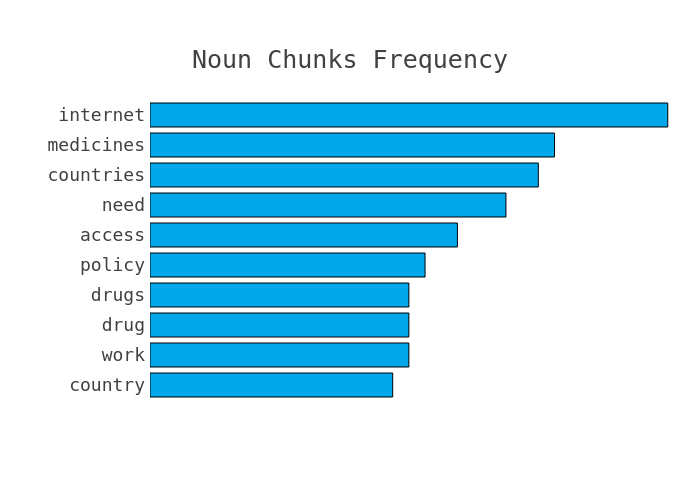Right to safe medicines: Managing competing interests online
9 Dec 2021 14:05h - 15:35h
Event report
The advent of internet pharmacy has created opportunities for better access to medicines. At the same time, however, it has enabled a global expansion of falsified substandard medicine because of insufficient and uncoordinated control mechanisms. This session, moderated by Mr Ron Andruff (President, ONR Consulting), discussed the rights to safe medicine in the midst of diverse regulations.Mr Aria Ilyad Ahmad (Researcher, Dahdaleh Institute for Global Health Research) stated that online and e-pharmacies that dispense across borders are a rapidly growing marketplace for medicines. He added that this is a critical case study at the intersection of internet governance and global public health as it includes issues of jurisdictional regulatory challenges that are resulting in public health risks, an uncontrolled free market, and safety issues.
Ms Olga Kyryliuk (PhD Program Manager, Rule of Law Initiative, American Bar Association) highlighted that the regulation of online pharmacies should guarantee the right to health and the access to safe medicines. She explained that regulatory frameworks face conflicts of jurisdictions, conflicts of loss, and risks of collecting and using customers’ private data. Kyryliuk mentioned the example of the mandatory EU logo and its harmonisation procedure across member states as a good example to follow.
Mr Mark Datysgeld (Governance Primer) shared research outcomes and a matrix of what is happening in the top ten countries in terms of the GDP in Latin America. He came to the conclusion that the legal vs illegal aspect is actually undermined by the level of difficulty in terms of competing interests, endless procedures, and lack of transparency. Datysgeld concluded that regulations should be harmonised within an agreement.
Ms Zina Hany (Public Health Expert for the Middle East and North Africa (MENA)) pointed to the diversity of policies and decisions regulating the healthcare system as a whole, and health expenditures across each MENA country. Hany called for a transparent online platform to cross-check prices and make drugs more accessible and available, although this would not be welcomed by gatekeepers, whether they be pharma companies or local distributors.
Ms Elizabeth Behsudi (Director, Domains and Jurisdiction Programme, Internet & Jurisdiction Policy Network) shared the I&J Policy Network’s work on enabling stakeholders to come together to collaboratively address the transnational policy challenges, as well as online access to medicine. She also spoke of their work towards policy coherence and legal operability between different initiatives, processes, and actors. Behsudi stated that we need voluntary policy standards and interoperable solutions, otherwise we will have a lack of innovation, inclusiveness, and flexibility.
By Ines Hfaiedh
Session in numbers and graphs




Automated summary
Diplo’s AI Lab experiments with automated summaries generated from the IGF sessions. They will complement our traditional reporting. Please let us know if you would like to learn more about this experiment at ai@diplomacy.edu. The automated summary of this session can be found at this link.Related topics
Related event

Internet Governance Forum (IGF) 2021
6 Dec 2021 10:00h - 10 Dec 2021 18:00h
Katowice, Poland and Online
